In an extraordinary gesture, the head of Sinn Féin has apologized for the murder of Lord Mountbatten in the week that his nephew Prince Philip died. The apology reflects that we live in very different times now from The Troubles.
Mary Lou McDonald the Sinn Féin leader has apologized to the Royal Family for the murder of Lord Louis Mountbatten, in County Sligo, on August 27, 1979. The timing was correct on a week of tragedy for the Royal family even if arguably, the apology should have been made in 2011 during the Queen’s state visit to Ireland.
Also killed were two teenagers and Lady Brabourne, mother of one of the boys, Nicholas Brabourne who was 14, The other teen was a 15-year old local lad Paul Maxwell.
It was one of the darkest episodes of The Troubles, intensified by an attack later that day on a British army unit that killed 18 soldiers.
Read more
It is an extraordinary apology and a brave decision by Mary Lou McDonald to acknowledge that like so many deaths in Northern Ireland and the Irish Republic during The Troubles, the Mountbatten murder was wrong and did nothing for peace.
The apology could also have been prompted by the continued goodwill towards the Irish peace process shown by the Queen and her courtiers, The Queen’s visit to Ireland in 2011 is rightly seen as a turning point as was her greeting among with Prince Philip of Sinn Féin leader Martin McGuinness in 2016 and the brief meeting between Gerry Adams and Prince Charles in 2015.
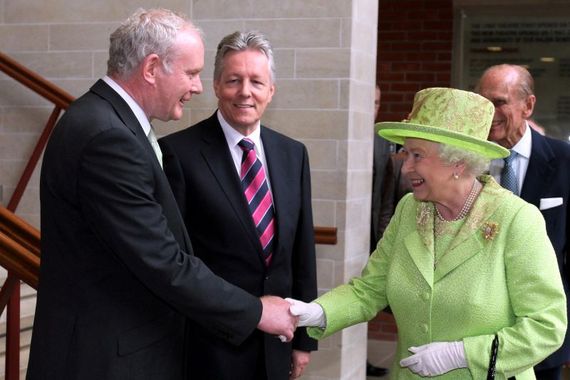
Sinn Fein's Martin McGuinness shaking hands with Queen Elizabeth II in 2011.
Those meetings and continued contacts have made it clear that the royal family stands ready to help rather than hinder the peace process in Ireland --no small matter. It is in that context that McDonald spoke and apologized.
It is excellent timing as The New York Times noticed: ”Seeking to salve an old wound at a time of sorrow for Britain’s royal family, the political leader of the Irish republican movement apologized for the 1979 assassination of Louis Mountbatten, an uncle of Prince Philip.”
Read more
McDonald was also addressing a new generation of Irish who know little of The Troubles other than from history books and she is drawing a clear line between politics and conflict.
As the largest political party in Northern Ireland and second largest in the Irish Republic, Sinn Féin has pivoted completely to a peace strategy.
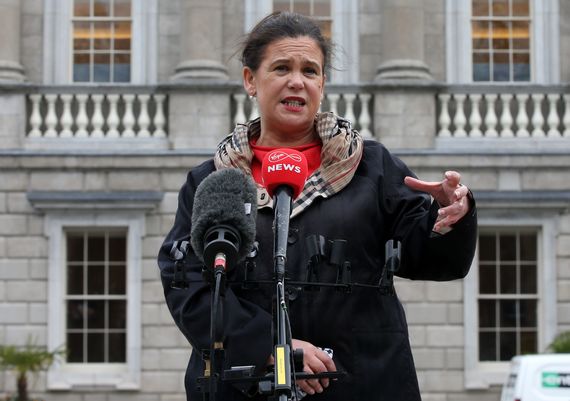
President of Sinn Fein Mary Lou McDonald.
With that in mind, there is absolutely no point in prevaricating or disguising the truth that the murder of Mountbatten aboard his boat with several innocent guests was wrong.
There is the usual fake outrage on the Unionist side as if they had nothing ever to apologize about. Death squads, collusion, pogroms, targeted assassinations all were carried out on their side when in power but don’t get your hopes up waiting for an apology.
As for the Irish in the Republic, the two main parties Fine Gael and Fianna Fáil made exactly the same transition from warfare to politics and peace. Yet they have conveniently exercised selective amnesia on the topic and pronounced Sinn Féin as still too impure to be allowed to take office in the Irish Republic though they seem to have a little problem with the fact that Sinn Féin are in a leadership role along with the Democratic Unionist Party in Northern Ireland.
The level of atrocities committed in the Irish civil war alone were as vicious and bloodthirsty as anything the IRA got up to during The Troubles. The only difference between Fianna Fáil, Fine Gael on one side, and Sinn Féin on the other is that Sinn Féin have just now completed their journey from war to peace. The others did it much earlier.
The comment by Mary Lou McDonald is not an outlier and reflects a reality that with border polls and elections soon ahead, Sinn Féin needs to draw that line with the past and they have just done so remarkably well. Only good can come of it.

Love Irish history? Share your favorite stories with other history buffs in the IrishCentral History Facebook group.
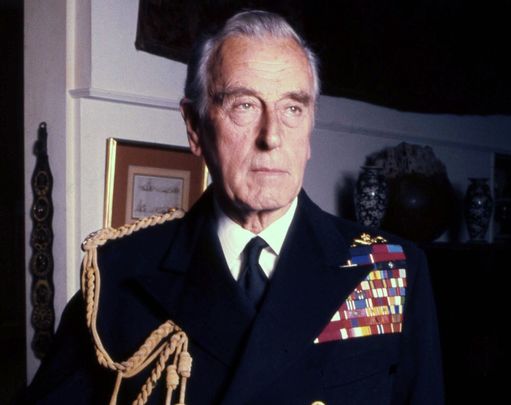

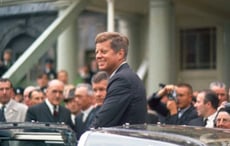
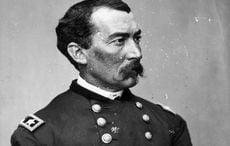
Comments